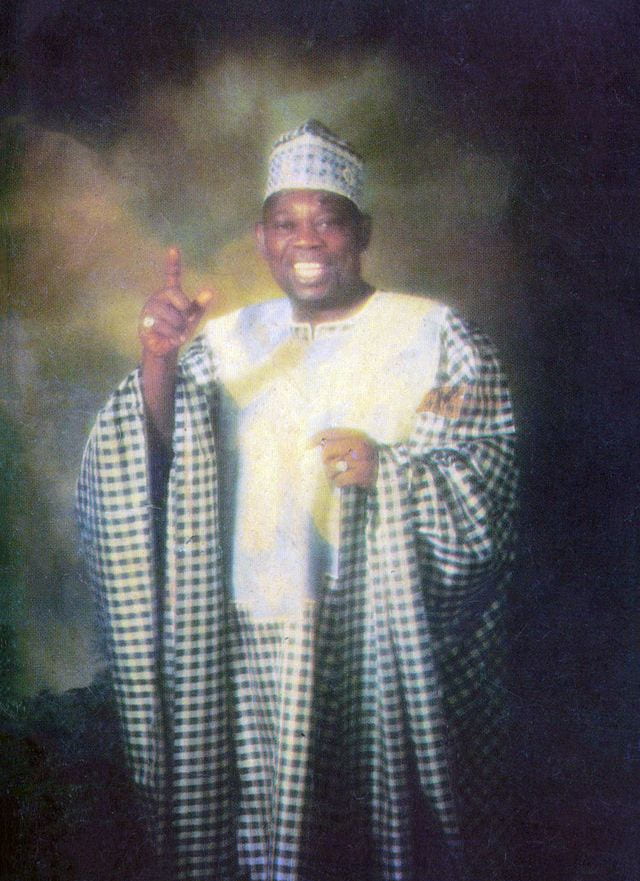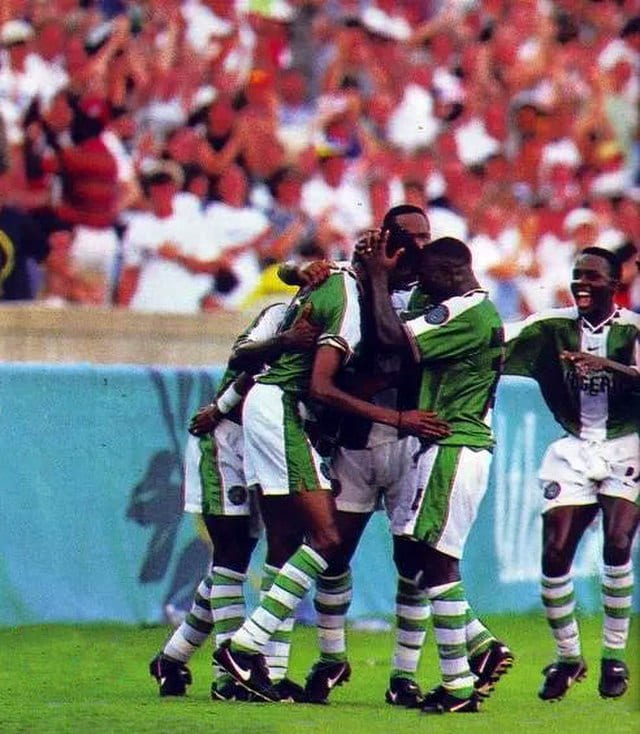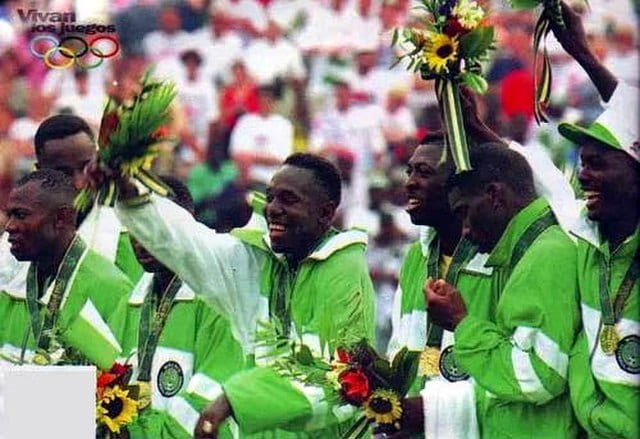By Shittu Doyin Samuel, Ajibade Adedoyin Esther and Carmel Dansou
From 1966 until 1999, Nigeria was ruled by a series of military regimes that seized power through fanatical coups. It was a period of great turbulence in the country. The military government was ruthless, and the country was aligned along tribal and religious lines. The year 1993 saw a glimpse of hope with the emergence of Moshood Kashimawo Olawale Abiola, a civilian leader beloved across many regions of the country. He contested in the June 12 presidential election that year andwas widely claimed to be the victor. The election, which was regarded as the freest and fairest election in the country’s history, was annulled by the military regime ruled by Ibrahim Babangida. Abiola was jailed in 1994, and passed away while in custody in 1998. This annulment triggered the political and civil unrest that the country would face during the period.
In November 1993, Sani Abacha, another ruthless military officer, seized power through a coup and dissolved the interim civilian government headed by Ernest Shonekan, which was created by Babagida following the backlash from annulling the ill-fated election of 1993. Abacha further sunk the country into a complete dictatorship. His regime was characterized by media censorship, authoritarian rule, human rights abuses, and suppressions on opposition. Civil rights activists were either assassinated or jailed.
While the economy nosedived, civilian protests were met with heavy machines guns. In the summer of 1995, things got worse. Abacha’s response to the protests in the Ogoniland region against environmental degradation caused by oil extraction was to publicly execute the prominent activist and writer Ken Saro-Wiwa and eight other environmental activists. They were falsely accused of inciting the murder of four Ogoni chiefs that were brutally assassinated earlier in June 1994, a pretext used by the military regime to get rid of them. The so-called “Nine of Ogoni” were put to death by hanging in November 1995. The global community, including Western countries and several other African nations, responded with outrage, imposing an economic embargo on Nigeria.
This period marked a tumultuous time for the Nigerian masses. However, it was in this moment of uncertainty and pain for Nigerians that the Men’s National Soccer team, Super Eagles of Nigeria, rose to stardom and placed the country on the map as one of the best soccer teams in the world. According to the New York Times, the nation leapt from obscurity to a gold medal.
In all the chaos happening in the nation’s political space, the “Dream Team” left a significant mark on the 1996 Olympic Games in Atlanta, Georgia, by winning the gold medal. Their performances and victory echoed throughout the African continent and beyond. It was a truly historical moment as Nigeria became the first African nation to win the gold medal in the men’s Olympic soccer game. The event is a memorable experience that still resonates today. For a nation whose fault lines cut deeply across ethnicity and religion, the gold medal sparked a week of intense celebration and jubilation among Nigerians. For the first time since the country’s independence, Nigerians threw away their political, religious and ethnic differences to celebrate this victory.
The super eagles began playing in Group D alongside giants like Brazil, Hungary and Japan. They started their campaign on July 21, 1996, with a 1-0 victory over Hungary. Although they dominated the game, the Hungarian squad played a very compact game, and their defense took work to break. And finally, at the 77th minute, as the Yoruba man would say, “God smiles on them,” Nwankwo Kanu, aka “Papillo”, found the way to the back of the net. That would be the only goal that gave the super eagles their first victory in the 1996 Olympics.
Next, they faced the Japanese team on July 23 at the Citrus Bowl. Jay Jay Okocha and his teammates had difficulty finding the back of the net. The first half was played with both teams playing a rather careful game. In the 83rd minute, under offensive pressure from Tijani Babangida, Takahiro Akiba scored an own goal and giving Nigeria the lead. The super eagles continued to pressure the Japanese team; this would eventually cause a Japanese defender to slide into the box, touching the ball giving Nigeria a penalty that Okocha successfully converted into a goal. The game ended with a 2-0 win for Nigeria. The great cities of Nigeria did not sleep during any of these games; each win of the super eagles ignited a spark of hope in the hearts of the people.
The last group stage match pitted the super eagles against the mighty Brazil, the best in the world at the time.It was a David vs. Goliath battle, and this time, as everybody expected, David did not win. Brazil’s Ronaldo Guiaro scored the only goal of the game in the 30th minute. However, Nigeria still qualified by goal differential and moved to the quarterfinals with Brazil.
On July 28, 1996, the super eagles played their quarterfinal games against Mexico at Legion Field. It was the first time in the nation’s history reaching this stage. Okocha scored the first goal in the 20th minute, followed in the 84th minute by a strike signed Celestine Babayaro, who found the back of the net. The Mexican squad did not manage to equalize, and the dream team moved to the semifinals, where they had to face again an earlier goliath that defeated them, Brazil.
This time, the soccer gods were Nigerian, and the underdogs in a sensational game sent Roberto Carlos and his teammates out of the competition. Nigeria vs. Brazil, the 1996 Olympics semifinal match, took place on July 31st (August 1 in Nigeria). Quickly Brazil scored three goals during the first half; the only goal scored by Nigeria was an own goal by Robert Carlos. It was believed that the game was over for the super eagles, the end of the dream. But as the saying goes, “Until the referee blows the last whistle, a soccer game is still always one.” Back from rest, Nigeria started a comeback with a goal in the 78th minute by Victor Ikpeba. In the 90th minute, Kanu scored again, and the two teams had to go to extra time with the rule of golden goal (the team that scores first during extra time wins). In the 94th minute, “Papillo” struck again ; Dida, the Brazilian keeper, would only see the ball in the back of the net. And that was the end of the game. Goliath is out, and David has progressed to the final state. The super eagles have made the impossible possible.
Back home, the country was jubilating; one would have thought that it was the final. Nobody could have imagined this scenario. Despite the harrowing political environment in their land and the chaotic preparation for the tournament, the underdogs defeated the mighty Brazil. That was surreal. In the street of Lagos, an unofficial national song called “When Nigeria Beat Brazil” was born that day and is still sung in stadiums today when Nigeria plays.
Argentina had defeated Portugal a day before and was awaiting the winner of the Nigeria-Brazil game. They were expecting Brazil, but to their surprise, they had to face the dream team. Nigeria’s victory over Brazil put some tension in the air; they were not to be taken lightly.
The gold medal match was held on August 3, 1996, at the Sanford Stadium in Athens, Georgia. The game started at 3:45 pm at Sanford Stadium, which was 8:45 pm in Nigeria time. It was an intense moment. A header from Lopez Claudio, which found the back of the net just after three minutes of the game, gave Argentina the lead. Nigeria leveled with a header from Babayaro in the 24th minute. In the 50th minute, Taribo West fouled in the box, and Argentina was given a penalty that Hernan Crespo converted in a second goal for Argentina. Twenty-four minutes later, Daniel Amokachi equalized for Nigeria. Finally, in the 90th minute, Emmanuel Amoneke scored the third goal, giving Nigeria it’s first-ever Soccer Olympics medal.
Nobody slept on the night of August 3, 1996. It is said that patrolling soldiers stopped, dropped their guns, sat, and watched the game, something that was never seen before. Military and civilians during that period were like a game of like cat and mouse, but that day, opposing factions stopped and celebrated together. It was the birth of a new dawn for the nation. The joy was unspeakable. The Nigeria’s Super Eagles soccer team indeed brought hope to the country. The motivation was high among the youth . You can become who you want to be through hard work is now the talk of the day. Nothing is impossible. In the streets of Lagos, for a week, at your left, you heard singing, “In Atlanta, super eagles dey fly, In Atlanta Bebeto dey cry” At your right, you heard, “Hallelujah, eagles are winning today, Papillo le o, Papillo le o.”
Nigeria’s victory in the 1996 Olympics was a significant achievement for Nigerian soccer and a moment of pride for the entire continent. Their dynamic and skillful style of play combined with their ability to overcome strong opponents earned them a place in Olympic history. The Nigerian Olympic success story and its effect on their country proved that soccer is a powerful peace instrument; it can end a war for a minute. At that time of chaos and divisions in the country, the super eagles emerged as a lone beacon of light, uniting the nation and providing a much-needed respite from the prevailing gloom. For a nation fraught with terror and tragedy, soccer can be a unifier that inadvertently saves the soul of the nation.
While the political class has successfully continued to use the ethnic and political divide to put a stranglehold on the country, soccer continues to be the band-aid holding the country together. Nigerians are passionate people, so it is commonplace to see a gathering of young and old Nigerians watching a game loudly, even breaking into songs while eating and drinking together. They do this in unison, cheering on young players whose ethnicity nor religious affiliate they know nothing about.
Born in Nigeria, Shittu Doyin Samuel is a PhD student at the Physics Department, University of Arkansas. Very passionate about soccer, he is also a very good player and a long supporter of Arsenal FC.
A native of Nigeria, Ajibade Adedoyin Esther is joining UARK in the coming fall semester as a PhD student at the Chemistry Department. She is passionate about soccer, especially the history of soccer and how it impacts culture around the world. She is a staunch supporter of Liverpool FC.
Carmel Dansou is a graduate student in physics at UARK. He is a lover of soccer. He enjoys watching as much as playing soccer. Carmel’s favorite team is Nigeria. His two favorite players of all time are Franck Henry Pierre Ribéry, a former French professional winger and Augustine Jay Jay Okocha, a former Nigerian professional midfielder.



